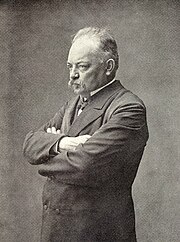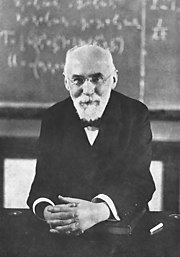Design
Design
Personality
Chart Properties
Your Cross represents the specific theme of your life. This cross embodies your unique potential & the lessons you're here to learn, providing a roadmap to fulfilling your life purpose.
We use the UTC birth time and date to do the calculations required to generate your Human Design chart.
Buy Tokens
Pay as you use, no expiry and no subscription required.Bobby Fischer's Biography
American chess grand master, a child prodigy who began learning chess at age 6 and began competing in chess tournaments at age 10. He won his first Class A championship at age 14 in 1957 and went on later that year to win the 1957-58 US Championship. He became the World Chess Champ by defeating Russia’s Boris Spassky on September 2, 1972 in the midst of the Cold War. After his win, chess rose to the level of competitive sports in the United States and chess teachers’ became dramatically busier. By the end of his life, Fischer had set several records; he was the youngest U.S. master and the youngest international grand master. He had won eight U.S. chess championships, invented a clock used in chess, and produced two books.
Fischer was the son of a German-born biophysicist who abandoned his family when Bobby was two years old. Fischer’s mother, a nurse and strong single parent, moved the family to Brooklyn, NY so she could pursue further studies. His older sister, whom he adored, gave him his first chess set when he was 6 years old, and Bobby was so engrossed in the game that his mother said, “Bobby isn’t interested in anybody unless they play chess and here just aren’t many children who like it.” She managed to get him involved in the Brooklyn Chess Club where he spent most of his young years, playing anyone who was willing. He dropped out of high school at age 16. Although his IQ was reported to be 180, and his memory was renowned for its ability to retain information, he was not interested in anything but chess.
When he did play, his competitive streak shone brightly, but his attitude was arrogant, demanding, and combative. He played ferociously, often on the attack, and when events took a turn he didn’t like, he spewed forth conspiracy theories to explain himself. He stopped playing in tournaments in 1972. A five-year follower of the Worldwide Church of God, considered a “fringe” group, he gave many of his winnings to his church while he re-played chess games in his room, read Nazi literature, and slid into destitution. He directed venom toward Jews, although his mother was Jewish. From the beginning she had supported and encouraged him to play chess, but he increasingly resented what he saw as her interference. Their relationship was severely strained, and he once told a reporter that he had to “get rid of her.”
After twenty years, his exile from professional chess was ended in a September 2, 1992 re-match with his old opponent, Boris Spassky. The match was held on the island of Svetistefan. The two began play at 3:00 PM and were to play until one of them won ten games. Fischer won the duel in November of 1992, winning the top prize of $3.35 million. His victory was well-broadcast, and he was censured by the US for playing a tournament in Yugoslavia, a country which was on the US sanctions list. Rather than face arrest, Fischer went into hiding, presumably in Central Europe and Asia. His mother and sister both died in 1997 and Fischer seemed to become more disturbed then ever. He issued a vitriolic condemnation of the United States and support of the perpetrators who had caused such mayhem in the September 11, 2001 attacks. Although he remained a recluse, his radio interviews, broadcast from the Philippines, cemented his reputation for paranoia, obsessive behavior and outrageous remarks.
Fischer never married but had liaisons with women, usually much younger than he. In 2000 his then-girlfriend reportedly gave birth to their baby girl in Manila.
The chess master was detained in Japan on July 13, 2004 for trying to travel on a revoked American passport. Fischer was attempting to fly to the Philippines from Tokyo and was promptly held at Tokyo’s Narita International Airport. Fischer fought the Japanese government’s threat of deportation to the US where he most likely would be arrested immediately. On August 16, 2004, Fischer announced plans to marry a leading Japanese chess official in an attempt to prevent deportation from Japan to the US. Fischer has been living with Miyoko Watai, Japan Chess Association President, since 2000. In addition, Fischer reportedly asked Colin Powell to help him renounce his US citizenship. A Japanese court later dismissed his request to halt deportation proceedings but Fischer appealed the ruling, and in early September he won an injunction until further investigation could be made. On March 24, 2005, the former chess master arrived in Iceland where he had been granted citizenship. He died on January 17, 2008 in a Reykjavik, Iceland hospital of unspecified causes. He was 64.
Link to Wikipedia biography
Link to Astrodienst discussion forum
Bobby Fischer
Your Cross represents the specific theme of your life. This cross embodies your unique potential & the lessons you're here to learn, providing a roadmap to fulfilling your life purpose.
We use the UTC birth time and date to do the calculations required to generate your Human Design chart.






